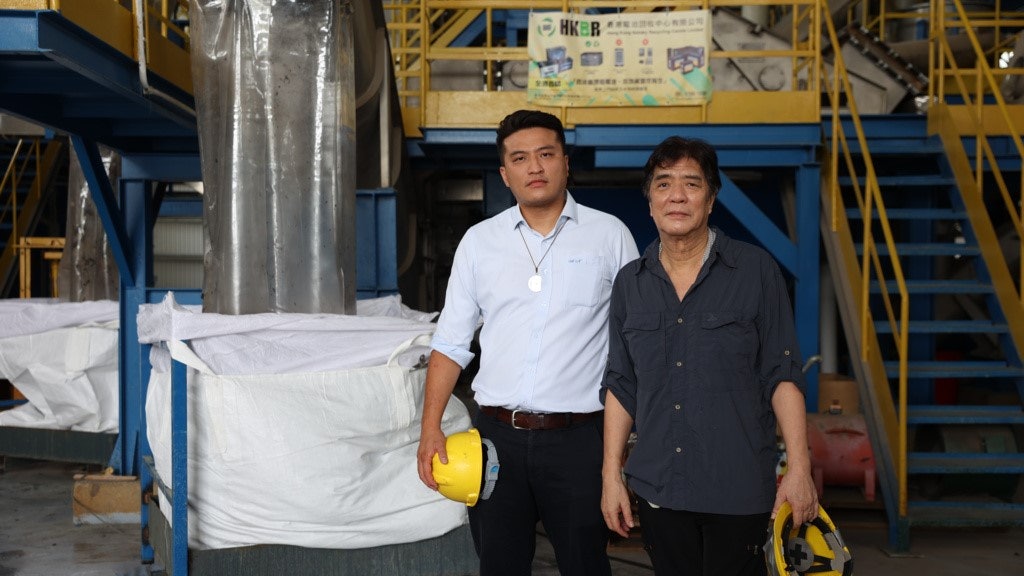Lead-acid batteries are mostly used in automobiles and emergency lighting systems. The Hong Kong Battery Recycling Center in EcoPark is one of the few licensed collectors that can recycle and dispose of lead-acid batteries in Hong Kong.
However, the person in charge of the recycling center sighed that the current average annual processing capacity of the plant only accounts for less than 5% of the design capacity of the plant. He criticized the government for law enforcement and insufficient support; and questioned the number of waste lead-acid batteries in Hong Kong, which has a large gap with the export and recycling volume. Spent lead-acid batteries with unknown destinations may be illegally exported or discarded.
The recycling center also believes that although the Hong Kong government has proposed the popularization of electric vehicles, it has not fully conceived how to deal with retired electric vehicle batteries. It is worried that the lead-acid battery recycling problem will be repeated. .
The person in charge of the recycling center suggested that the Hong Kong government consider setting up a registration system that requires registration when importing lead-acid batteries in order to track whereabouts.
+2
Lead-acid batteries are mainly used in vehicles, but also in uninterrupted power supplies such as computer server systems, data centers, building emergency lighting and anti-theft systems.
However, because batteries contain harmful substances, the recycling and disposal of waste lead-acid batteries are regulated by law.
The Hong Kong Battery Recycling Center was opened in 2019. It is one of the licensed waste lead-acid battery processing facilities. Lead decomposed from waste batteries will be transported to the Mainland and Southeast Asia and then re-made into lead-acid batteries.
Pang Jie, chairman of the recycling center, recalled that about 10 years ago, he believed that the number of waste lead-acid batteries was large and the recycling work was promising. "There are 7,000 to 8,000 tons (waste lead-acid batteries) of 800,000 private cars in Hong Kong every year."
He also believes that the Hong Kong government has a sound system for regulation, and that many years ago he went to India and other places to witness the illegal disposal of waste lead-acid batteries, so he decided to set up a factory in Hong Kong.
A large number of waste lead-acid batteries are suspected of being illegally exported
Wu Ruilin, director of the recycling center operations, pointed out that the center has more than 200 customers in its two years of opening, including telecommunications companies, car dealers, data centers and hospitals.
He said frankly that the current recycling center is "difficult to endure well." The plant is designed to handle 40,000 tons a year, but currently only more than 1,000 tons are recycled a year.
He reluctantly pointed out that the investment of nearly 100 million yuan in the past 10 years has not only failed to reach the balance of payments, but also lost hundreds of thousands of yuan every month.
Quoting data from environmental assessment and auditing companies and environmental protection groups, Pang pointed out that referring to the use of lead-acid batteries in Hong Kong's transportation and telecommunications industries, it is estimated that Hong Kong produces at least 20,000 tons of waste lead-acid batteries each year.
According to figures from the Environmental Protection Agency, last year's export volume was the highest in recent years, reaching 6,998 metric tons, all of which were shipped to South Korea.
However, the export volume plus the local recycling volume still falls far short of the estimated disposal volume.
According to his understanding, the unaccounted waste lead-acid batteries are suspected to have been illegally exported to Southeast Asian countries and handled improperly.
+5
The plant has reserved a place to build lithium battery processing facilities
Wu Ruilin criticized that although Hong Kong has complete laws and regulations, it has not strictly enforced the illegal export and disposal of lead-acid batteries. In addition, the government has insufficient support for recycling centers. He also cited as an example that the Electrical and Mechanical Services Department only provides waste lead among government departments. The acid batteries are processed by the recycling center. "The government has nothing to do with it. I hope that other organizations will recycle it together?" He described the government as "burying its eyes, but not seeing it." He doesn't even know the specific amount of waste lead-acid batteries disposed of in Hong Kong.
Pang Jie suggested that the Hong Kong government should refer to the "Four Electricity and One Brain" plan, register all lead-acid batteries at the time of importation, list the expiration date and other information, and label it so that it is easier to understand the number and whereabouts of the batteries.
Wu Ruilin believes that large companies should also have a social responsibility to hand over waste lead-acid batteries to recycling facilities for processing.
Wu also pointed out that in response to the popularization of electric vehicles, a place has been reserved for the construction of lithium battery processing facilities in the factory, but he emphasized that it depends on the government and whether it has established recycling channels and policies for electric vehicle batteries.
"Green in the area" recycling convenience points average daily recycling volume of more than 20 metric tons, and each day receives 1 ton of waste. The retired battery of Hongkong Electric Electric Vehicles becomes a back-up power source to offset the voltage drop triggering the risk of "difficulty" electric vehicles|Government-developed batteries The second application of the producer responsibility system, but recycling depends on exporting electric vehicles|Huang Jinxing: Promoting popularization requires market-oriented free charging or relying on "free lunch" two departments to block 50 metric tons of illegal exports of lead-acid batteries
01News

